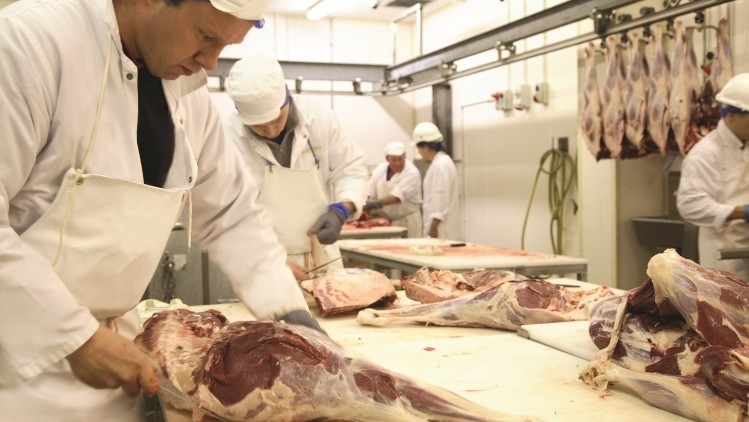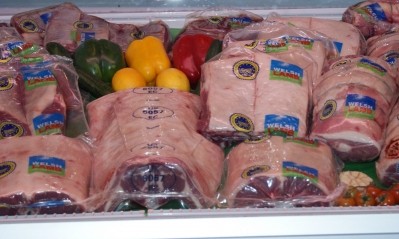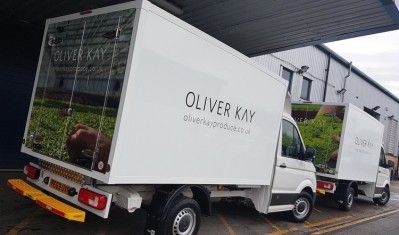Meat supplies at risk from coronavirus labour shortages

With large numbers of staff working in close quarters, meat processors could be in danger of a complete shutdown should infected employees turn up for work.
While the Government has advised for sick workers and those coming from an infected household to stay at home, there is a risk that waged workers will not stay at home for statutory sick pay of just £94.25 per week – less than a quarter of typical wages in the meat processing sector.
Coronavirus update
23 March: FSA extends support for meat industry
Support for meat processors in strengthened to mitigate coronavirus struggles
22 March: Manufacturers increase production by 50%
Panic buying boosts production by up to 50%.
16 March: Food chain tackles panic buying
Manufacturers, distributors and retailers are forced to take special measures.
16 March: Scampi sales up as coronavirus stockpiling hits Sales of frozen scampi have skyrocketed.
13 March: Morrisons announces special support for smaller suppliers to help with the financial fallout from the disease
12 March: UK moves from 'Containment' to 'Delay' phase for handling outbreak. Government advises people with a new and persistent cough and high temperature to stay at home for at least seven days.
11 March: William Reed food shows postponed due to coronavirus
William Reed has taken the difficult decision to postpone its UK Food Shows, originally scheduled to take place at Birmingham NEC from 30 March to 1 April.
11 March: Coronavirus addressed in 2020 budget
The Government announces financial schemes to help business mitigate the impact of coronavirus, including easier access to sick pay.
10 March: Food delivery curfews relaxed to supermarkets
Government relaxes food delivery hours to supermarkets to help the supply chain cope with COVID-19
10 March: A third of shoppers already food stockpiling
Online survey finds a third of consumers are already stockpiling foods in case of a major outbreak of COVID-19
9 March: Food manufacturers urged to mitigate coronavirus risks
Advise relates to concerns about product contamination and the possibility of a sick workforce.
Business Interruption Insurance
The BMPA pointed out that large processing operations were also vulnerable because Business Interruption Insurance protection does not cover losses or closure related to COVID-19, and Government support for business interruptions only relates to small businesses.
Chief executive Nick Allen called for measures designed to protect business with less than 250 employees to be extended to include large business operating in the food processing sector.
He also called for sick pay for people off work with COVID-19 (voluntarily or medically) to be increased and refunded to all food companies, regardless of size. Allen cited the Republic of Ireland’s increase in illness benefit from €203 to €305 per week as a good example of how this could work.
“The sustained operation of the food industry is an essential service to the UK population and economy during this crisis,” Allen added. “BMPA is working with farmers, retailers, Defra [the Department for Environment, Food and Rural Affairs], the Food Standards Agency and organisations up and down the food supply chain to formulate a pragmatic approach to these challenges.
‘Regulatory flexibility’
“We are calling for some regulatory flexibility in areas such as country-of-origin labelling, veterinary duties in abattoirs and the 10-day shelf-life rule, which our research shows can be safely extended for all red meat. We now call on Government to put the measures in place that will enable food processors and manufacturers to maintain supplies to the British public.”
The BMPA also identified a dramatic shift in demand for meat products over the past couple of weeks, as more people stockpile in preparation to stay at home. Supermarkets have seen meat orders increase by 20–30%, while out-of-home sales have dropped off significantly.
This comes as the food manufacturing sector gears up to increase volume as it reported trading on certain products was above Christmas levels.
The seismic shift in consumer buying habits has impacted meat processors supplying to the foodservice industry, who are unable to divert capacity to supply to supermarkets and vice-versa.
This, in turn, has put even more pressure on those manufacturers now at risk from labour shortages thanks to the coronavirus.

















